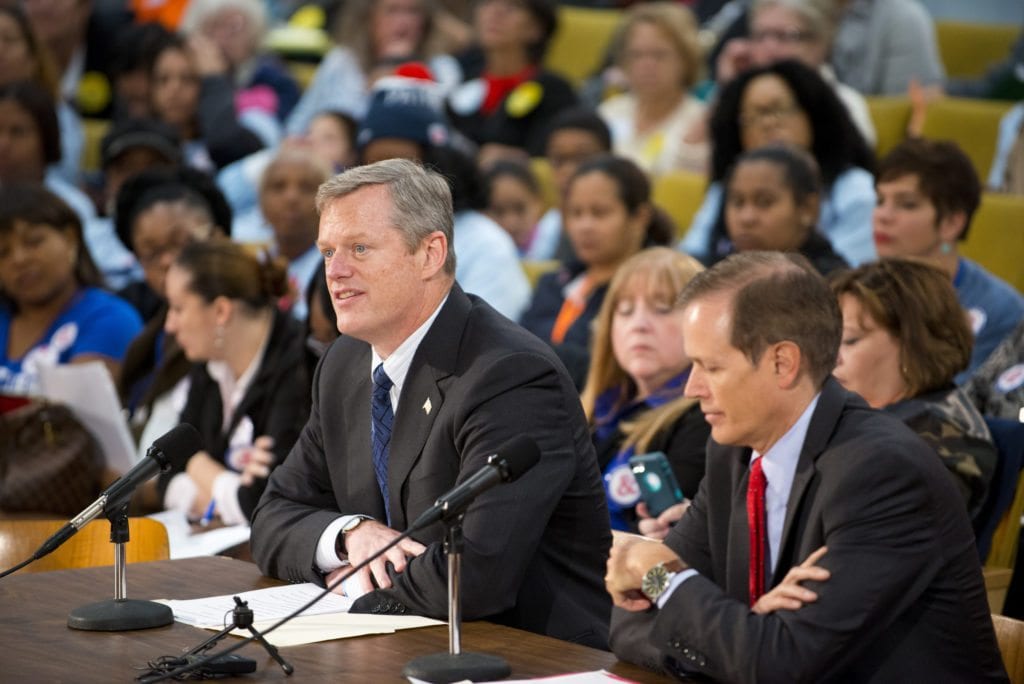
Jule Pattison-Gordon
Seven Boston Public School students along with the New England Area Conference of the NAACP moved today to intervene in a pending lawsuit over the cap on charters. The lawsuit, filed in September, calls for completely lifting the cap.
Now the intervenors — who include students of color, English language learners and students with disabilities — seek to introduce the voice of those they say would be harmed should the plaintiffs win their case.
They attest that charter schools serve proportionately fewer ELL students and students with disabilities and push out students of color with harsh disciplinary measures. Exacerbating this: charter schools also draw millions of dollars from district schools, making it harder for BPS to serve students that charters do not, or will not serve.
“This diversion of funds is doubly harmful to the students of color, students with disabilities, and English language learners we represent,” stated Scott P. Lewis, partner at Anderson & Krieger LLP, which is representing the proposed intervenors pro bono. “These are the students who are disproportionately excluded from charter schools. Moreover, when funds are diverted from traditional public schools to charter schools, these same students experience devastating cuts to services they desperately need.”
Activists filed a motion to day that would allow them to bring testimony and perspective of the students to the lawsuit’s next hearing.
“It is critical that the voices of students in traditional public schools be heard in this lawsuit,” said Matthew Cregor, education project director of the Lawyers’ Committee for Civil Rights and Economic Justice and one of the lead attorneys for the student intervenors.
Last fall, Attorney General Maura Healey moved to dismiss the case to lift the charter cap. That motion is currently pending. Should it fail, Cregor expected the case’s next hearing would happen in spring.
Lawyers Paul F. Ware Jr., Michael B. Keating and William F. Lee filed their lawsuit against the Baker administration officials responsible for enforcing the charter cap in September 2015. They filed on behalf of five Boston students who did not receive seats in charter school lotteries and were assigned to underperforming district schools. The plaintiffs charge that the limit on charter school seats deprives thousands of students across the state of the right to quality education.
The lawsuit is a peculiar one because the defendants in the case — Secretary of Education James Peyser and the other Baker administration officials — agree with the plaintiffs that the cap should be lifted.
This makes it essential that the perspective of those who oppose a cap lift is featured in the case, Cregor said.
“The plaintiffs and a number of the defendants are aligned in this lawsuit,” stated Alan J. Rom, another counsel for proposed intervenors. “Unlike the current defendants, the students we represent have a vested interest in seeing this lawsuit defeated. If the cap is lifted, their schools would face devastating cuts. That perspective should be heard in this litigation.”
Counsels for the proposed intervenors also include Kathleen Boundy, co-director for the Center for Law and Education and Roger Rice of Multicultural Education, Training, and Advocacy.






